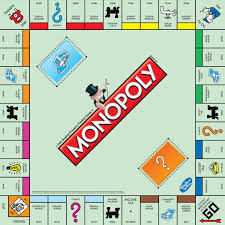记忆方法
记忆“monopoly”这个单词,可以将其分解为两部分:“mono”(单一)和“poly”(许多)。想象一个游戏棋盘上的“ monopolist”,他拥有并控制着棋盘上所有的资源或财产,象征性地代表了单一拥有的许多东西,即垄断。这种方法通过视觉形象和词根的组合来帮助记忆。
以上内容由AI生成, 仅供参考和借鉴
中文词源
monopoly 垄断,独占
mono-,单个的,-poly,卖,词源同oligopoly,polypoly.即只有一家卖家,引申词义垄断,独占。
英语词源
- monopoly (n.)
- "exclusive control of a commodity or trade," 1530s, from Latin monopolium, from Greek monopolion "right of exclusive sale," from mono- + polein "to sell," from PIE root *pel- (5) "to sell" (cognates: Sanskrit panate "barters, purchases," Lithuanian pelnas "gain," Old Church Slavonic splenu, Russian polon "prey, booty," Old Norse falr, Dutch veil, German feil "for sale, venal").
Alternative form monopole (1540s, from the Old French form of the word) was common in 16c. The popular board game, invented by Charles Darrow, is from 1935. Monopoly money "unreal currency" is attested from 1972, in reference to the paper used in the game.
权威例句
- 1. "Monopoly" is one of the best-selling games of all time.
- “大富翁”是有史以来最畅销的游戏之一。
- 2. Had he succeeded, he would have acquired a monopoly.
- 要是他当时成功了,他就会取得垄断地位。
- 3. In the past central government had a monopoly on television broadcasting.
- 过去,中央政府对电视节目播放实行垄断。
- 4. Inflation was so high that the notes were like Monopoly money.
- 通货膨胀严重,货币变得跟“大富翁”游戏钞票无异。
- 5. His monopoly of shipbuilding in that country has been established.
- 他对那个国家造船业的垄断已经建立起来.
